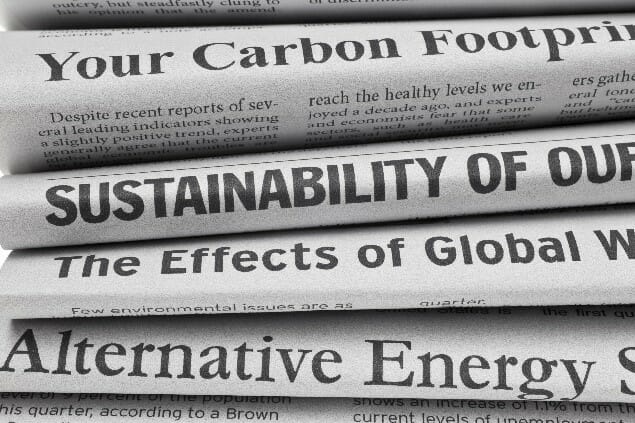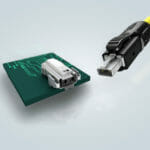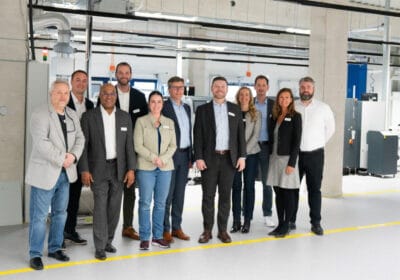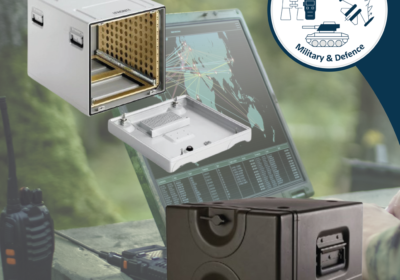With the shift towards a low carbon economy well underway, Injection Moulding machinery supplier Sumitomo (SHI) Demag is giving UK manufacturers the power to reduce their energy consumption by launching a new testing service. Resulting in moulders being able to make a more educated machinery investment decision based on credible and impartial hard facts.
Already a popular value-add service, with the company undertaking more than 300 performance measurements for customers annually, Sumitomo (SHI) Demag recently invested in three new Fluke energy monitoring devices to extend this service. Plugging the tool into existing machines, including legacy and competitor moulding systems, the company conducts the energy tests on-site using a real production scenario. Calculating the energy used in kilowatts for each kilogram of raw material converted, the team then provides the customer with a credible comparison if they were to purchase a newer Sumitomo (SHI) Demag machine.
“Most of the time customers are looking for the justification to switch from a hydraulic machine to all-electric. But equally, the report can flag to customers changes to the process that they can adopt to reduce energy consumption on their existing injection moulding fleet,” explains Technical Manager Nick Stockton who helps to perform the on-site checks.
For one customer – McLaren Plastics, the comparative data was a requisite for successfully securing a local grant to help fund the moulder’s investment in two new IntElect2 50 ton machines. The initial measurement revealed that each legacy machine was consuming 7.2kw per hour. The IntElect2 machines consume less than 2kw per hour.
At the start of December, Sumitomo (SHI Demag revisited the Midlothian company to test McLaren’s new IntElect’s in situ. The results showed that McLaren is now saving over 58% in energy, moulding the exact same components at the same speed, saving 7.11 kw per hour on these two machines alone.
Comparing apples with apples
Although many machinery suppliers present top level estimates for energy savings, the real proof is when energy tests are based on the entire machine set up, and perform a like-for-like comparison. “For a genuine benchmark, you need to compare apples with apples. This means testing the entire process running the same product before and after new kit is installed, with all ancillary equipment plugged in. It is the only true way to gauge the energy and performance improvements,” exclaims Nick.
In addition to examining energy performance, the tests also examine other factors including the parallel movements and the impact of drive cycle times on output. Using too much clamp force, running at full dosing speed and leaving a pump running when the machine’s not operational are all common examples of where energy can be wasted, notes Nick.
The results are compiled into a comprehensive report that presents companies with robust data that can be included in annual CSR reports. Nick explains: “Company stakeholders aren’t just looking at the bottom line, but also non-financial information. Sustainability now features strongly in these annual reports, and shows the direct impact that business decisions have in relation to trust and future governance.”
Recognising how critical this data is, the UK Sumitomo (SHI) Demag team has committed to conduct an energy check along with a Euromap 6 dry cycle check on every annual assessment, effective January 2020.
Immediate step-change needed
According to the latest report issued by the International Energy Agency (IEA) in November 2019, carbon pollution increased by 1.9 percent in 2018. A similar report issued by the Global Carbon Project indicated a 2.7 percent increase in the same timeframe. These figures and future estimates suggest that the net zero carbon emissions goal is 20 years off the 2050 target. Yet, as dire as the situation might look, the increasing adoption of clean and renewable energy solutions, especially by the manufacturing community, is a positive counteracts Managing Director Nigel Flowers.
Currently, the UK injection moulding market is spilt 25% electric/75% hydraulic. For industries where precision is paramount, such as medical devices, the adoption of all-electric machinery has been more rapid. However, Sumitomo (SHI) Demag is continuing to extend its IntElect range to cater to the automotive, electronic and packaging sectors, as well as LSR and multi-component moulding. Many of these new sector-specific systems were unveiled at K-2019, and feature larger mould cavity sizes, enabling manufacturers to opt for smaller, more energy efficient machines with a reduced clamp force.
Additionally, a lot of the energy saving technology deployed in the IntElect series, for example the direct drive, is being utilised in the El-Exis and Systec ranges.
Nigel comments: “Applying the circular economy ideologies to plastic processing requires a systemic shift in attitudes and actions. Many are keen to opt for more energy efficient systems. But until recently, machinery suppliers have struggled to quantify and compare performance data in relation to energy consumption, investment and planned maintenance costs, mould wear, output quality etc.
“Having access to this commercial evidence is a real step change for moulders and stakeholders, providing proof that manufacturers are taking steps to reduce their environmental footprint and contribute to the circular economy,” ends Nigel.







